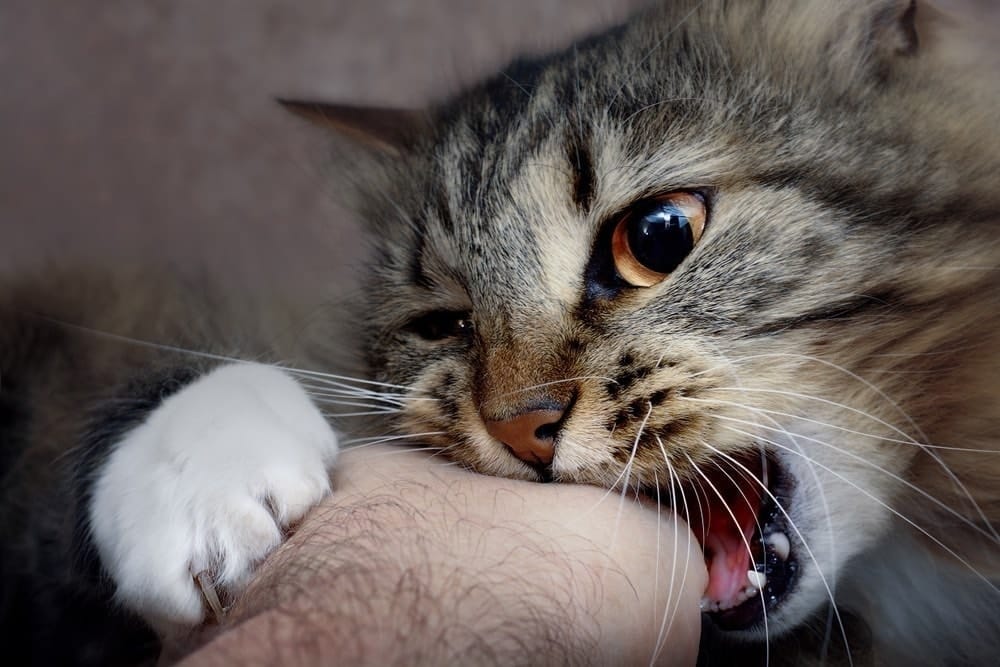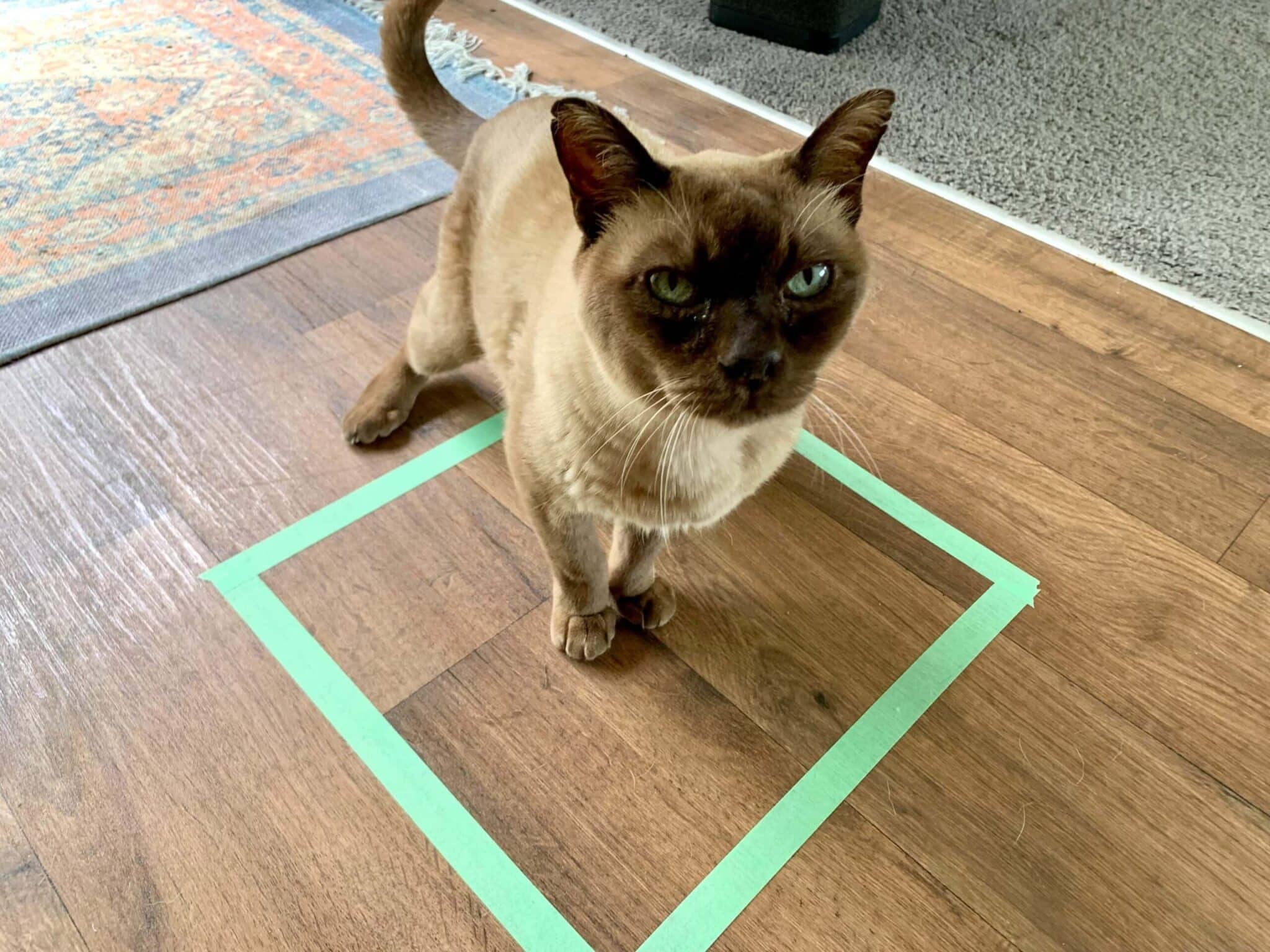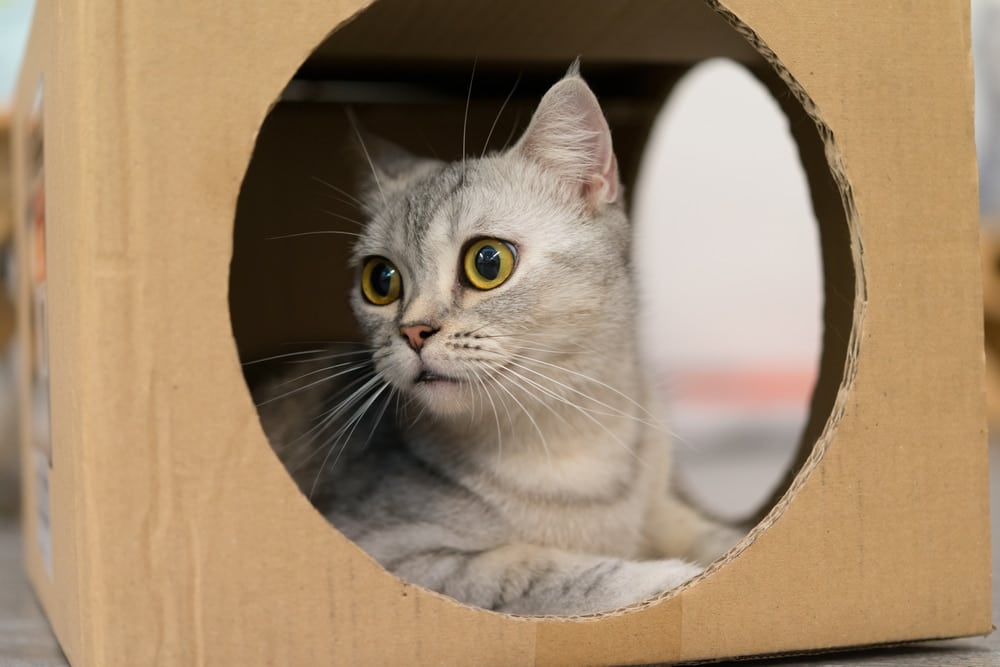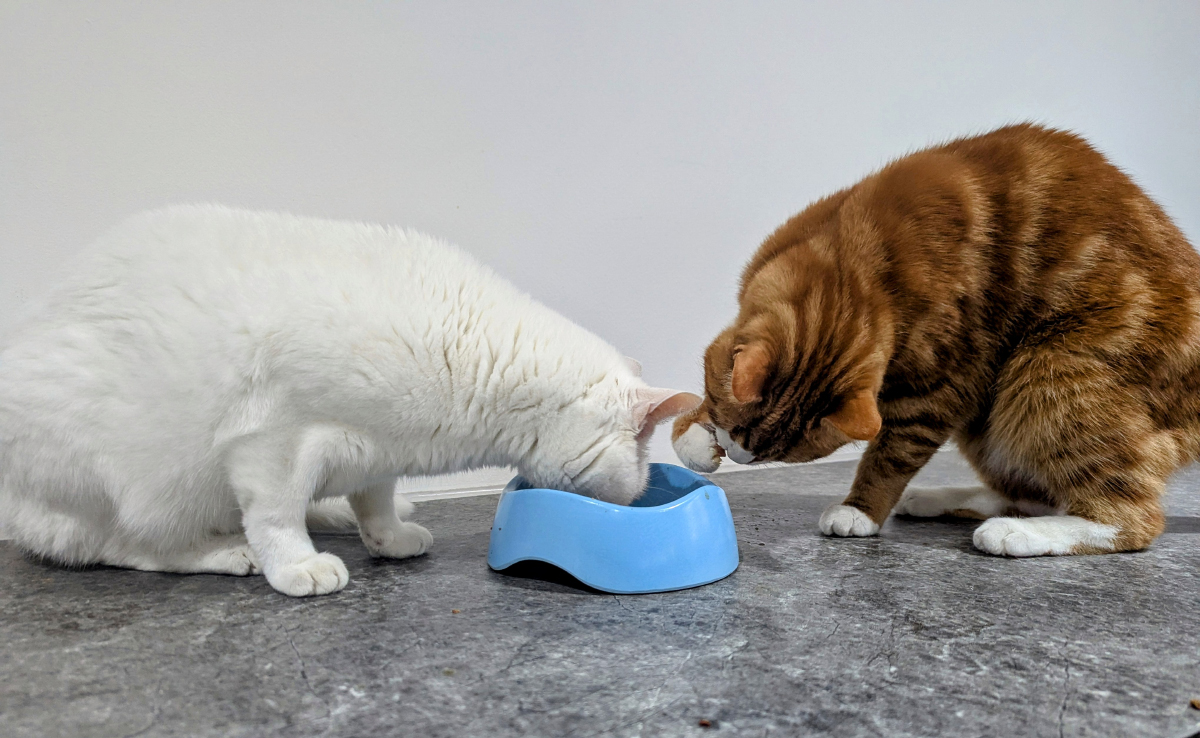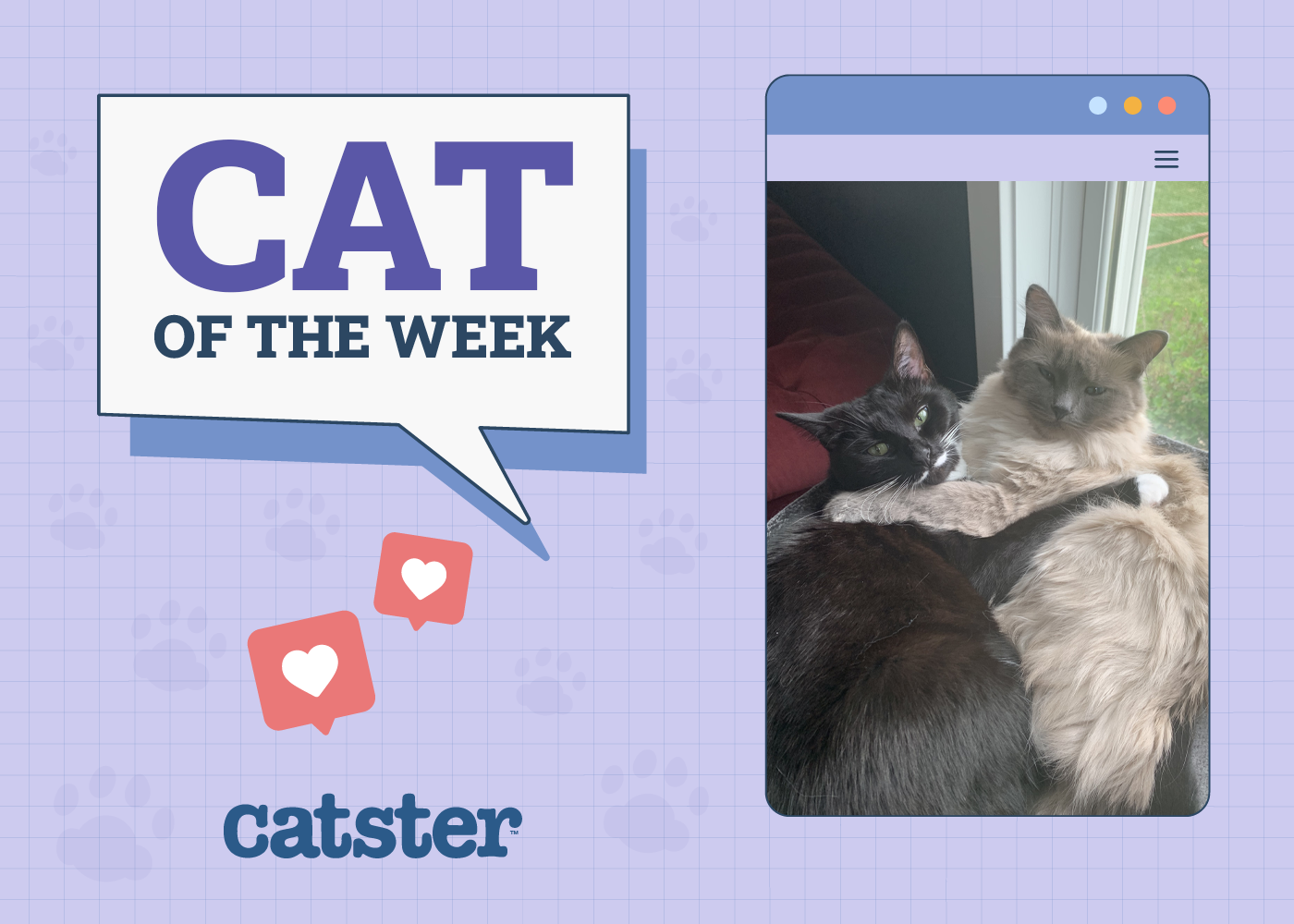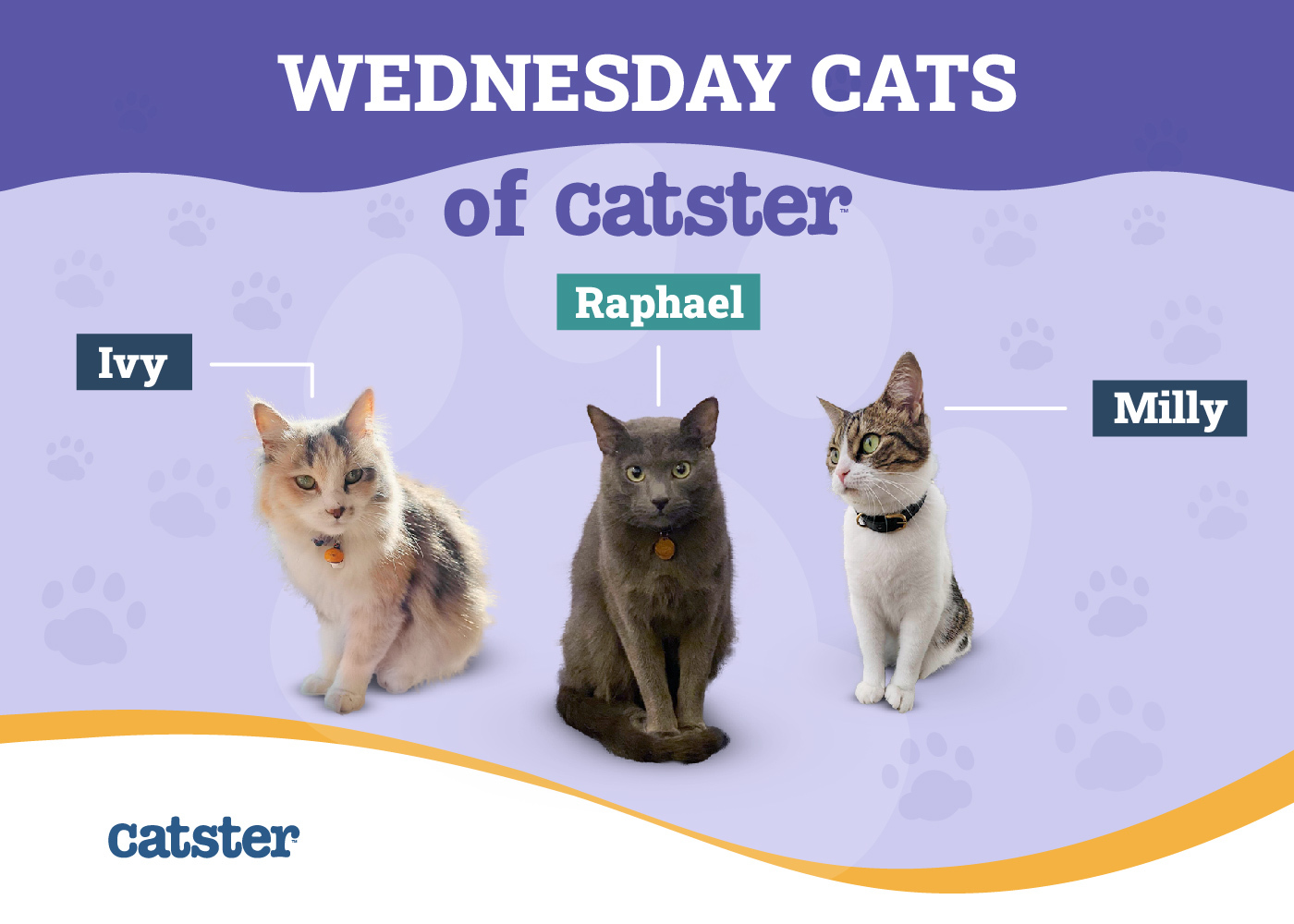Click to Skip Ahead
You’re sitting there ever-so-innocently petting your beloved feline, and—ouch! That really hurt! Your cat has turned to bite you. Some will flop on their bellies, grab your hand, and kick; others will sound disgruntled as if it were a warning bite.
Regardless of the response, your kitty is biting, and it’s no fun. You may be wondering, “Why does my cat attack my hand?” Or, “Why does my cat randomly bite me when I pet her?” Like anything else, it depends on the particular circumstances, body language, and severity. Some of it can be playful, fearful, aggressive, or agitated. So, we’ll take a look at these reasons in further detail.

The 6 Causes of Cats Biting Humans
Most of the time, cats biting humans happens playfully. Kittens are the usual culprits for excessive biting and can grow out of it if the behavior is correctly modified. However, other times, it can signal a behavioral change or health-related reaction.
Let’s take a peek at each!
1. Petting Aggression
Petting aggression in cats is a real thing. If your cat bites while petting them, it doesn’t mean your cat doesn’t like you, and it doesn’t mean they want to hurt you. It’s fairly normal for cats to have enough petting after a time. Some cats could be very tolerant for a long time, while others don’t enjoy stroking and won’t tolerate it for very long, even at all.
When your cat has had enough they may bite to get you to stop, and it’s important to respect their boundaries. Look for subtle signs of agitation in their body language, such as tail flicking, dilated pupils, flattened ears, and a tense body.
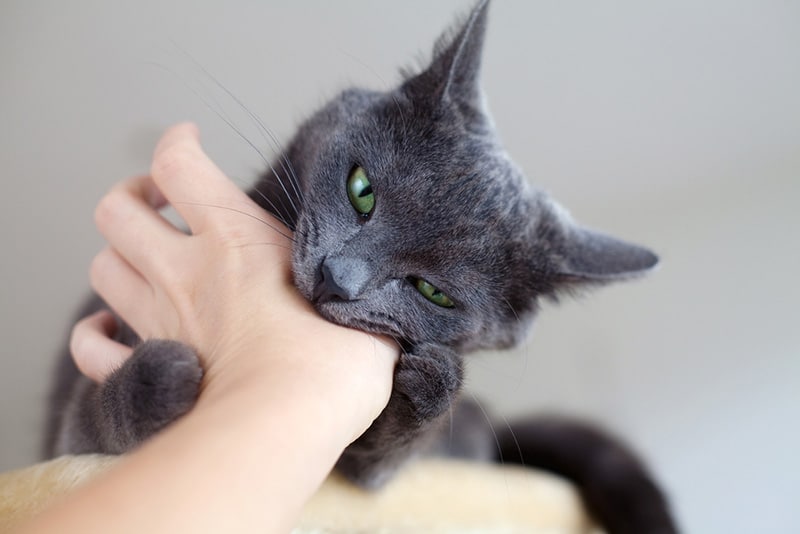
2. Play
Playful bites are common among kittens and occur when kittens play together as well as when kittens wrestle human hands. An adult cat that loves to play with hands and feet has probably been encouraged in this behavior. These bites are all in good fun from your cat’s point of view, but they can still hurt and should be discouraged through training.
3. Love Bites
Love bites are usually much lighter than petting aggression. Anything can happen when your cat is in an obvious state of bliss. If you’re petting your cat and they’re loving it, they might bite your hands, your limbs, or even your chin! It is usually preceded by social grooming (licking).
I have a cat named Ouija who absolutely adores biting my chin when I give him extra love. It often doesn’t hurt and only happens in this type of setting. Can it hurt sometimes? Absolutely! But he means only the best.
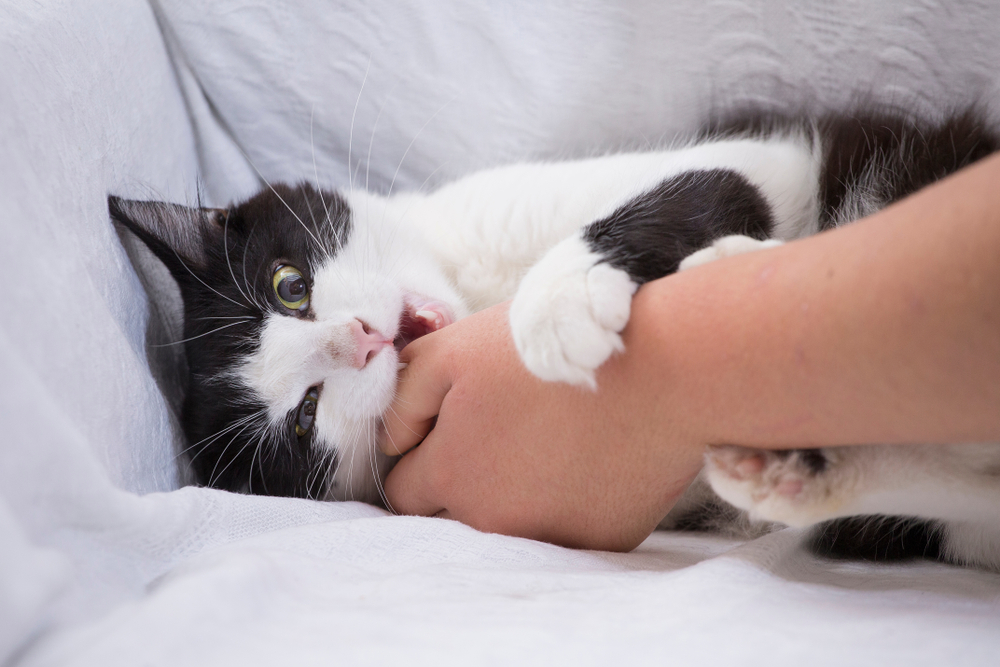
4. Fear and Stress
Cats are notoriously vocal creatures. They speak volumes with their voice and their body language. If a cat is biting out of fear, their entire body likely tells you that they weren’t in the mood long before you ever touched them. We must listen to an animal’s body language, as this directly indicates how our interaction will go. With a cat, if they are physically uncomfortable, have their ears drawn back, start to growl, or display vocalizations, don’t try to pet the cat.
They are giving you a warning that they want no part of it. Warning signs can be more subtle, so, similarly with petting aggression, brush up on cat behavior and body language. Changes in the household, such as visitors, renovations, and new pets, can stress your cat and potentially make them less sociable.
5. Health Issues
Several health issues can cause both personality changes and pain. So, if your cat is biting you suddenly, it could very well be because of something going on internally that you can’t see.
Some health issues that may result in biting generally come from those that involve pain or confusion. These could include:
- Hyperthyroidism
- Arthritis
- Hyperaesthesia syndrome
- Cancer
- Injuries
- Spinal issues
- Bladder issues
If you fear that the health issue could be the underlying cause of biting, you must immediately make an appointment with your vet. Your vet can perform a physical examination and bloodwork to determine if anything is off or requires further treatment.

If you need to speak with a vet but can’t get to one, head over to PangoVet. It’s an online service where you can talk to a vet online and get the personalized advice you need for your pet — all at an affordable price!
6. Hormones
Hormones play a key role in our cats’ personalities. Hormone fluctuations in heat can lead to behavior changes in female cats. Males with lower testosterone levels have been shown to have more voluntary contact with humans.
Often, vets recommend getting your cat fixed around the age of 4 months to prevent any behaviors associated with sex hormones (which can be a lot worse than just biting!).
The 6 Ways to Stop Your Cat From Biting
Now, you have a few reasons cats might bite, either during play or truly displaying aggression. So, how do you make it stop? Unfortunately, there isn’t a fix-all solution since it depends on the underlying cause. Hitting or yelling at your cat is never the answer, as this will scare and confuse them.
In light of the key points we’ve discussed, here are a few pointers on handling it once medical conditions have been ruled out.
1. Respect Your Cat’s Personal Space
If you know your cat well, you know their boundaries around petting. Whether they allow a lot, a little, or none at all, do not push the boundaries, as this will be unpleasant for them. Your cat may simply not enjoy what you are doing. Keep in mind that petting on the chin, muzzle, and cheeks is generally more accepted than petting on the body, especially the belly, so start with these areas. If you have only just welcomed your cat into your family, they may also need more time to get used to you before they allow too much petting.
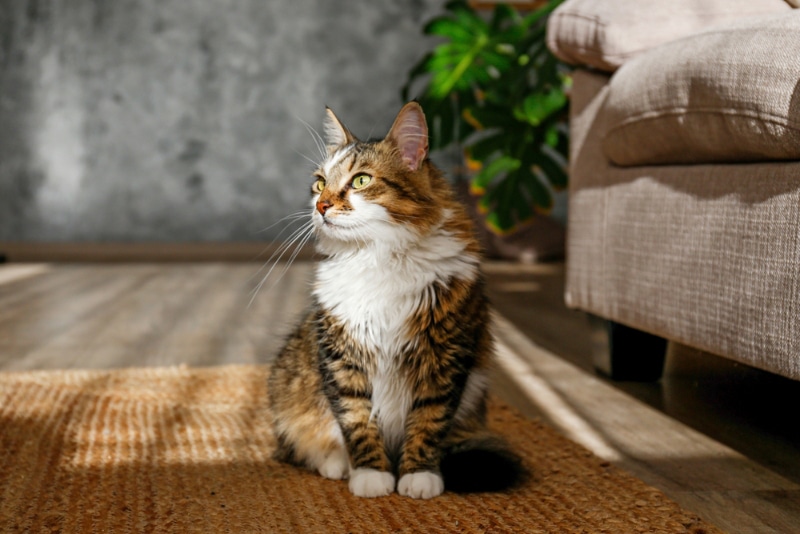
2. Redirect Biting to a Toy
Anytime your cat snatches hold of you and tries to bite, regardless of whether it’s aggressive or play-related, redirect their attention to a toy or something eye-catching. If you continuously show them that your hand is not a toy and give them what is, they will naturally pick that up over time.
A lack of physical outlets can also cause increased distress, making exercise an appropriate goal. Remember that cats need two 15-minute play and exercise sessions a day to stay happy and healthy, so encourage play.
Looking for toys that will cater to the many needs of your cat? The Hepper Hi-lo Cat Scratcher is one of our favorite cat products that is sure to encourage your cat to get active. Its clever three-angle design offers multiple ways for your cat to climb, stretch, and exercise. Made of a sturdy plywood base and a replacement cardboard insert, this scratcher is an option that cats can enjoy for years to come. If your cat requires a little encouragement for self-play, the Hepper Plush Mouse Kicker is a fantastic choice for their instinctual needs. Equipped with bite and kick-resistant fabric, an enticing internal bell, and organic catnip, cats can satisfy their natural prey instincts while getting the physical activity they need to thrive. At Catster, we've admired Hepper for many years, and decided to take a controlling ownership interest so that we could benefit from the outstanding designs of this cool cat company!
Image
Product
Details
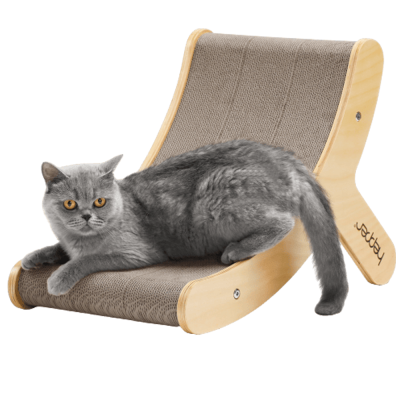
Hepper Hi-Lo Cat Scratcher
Check Price
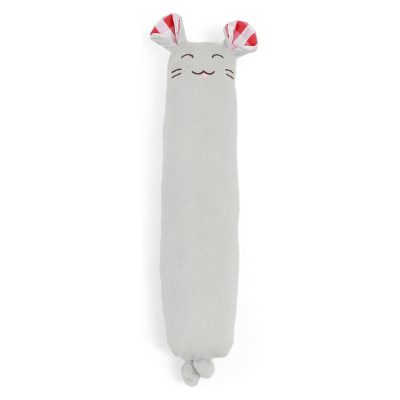
Hepper Plush Mouse Cat Kicker Toy
Check Price
3. Never Play With Your Hands
It’s widespread knowledge that you should never play with a cat with your hands, as this encourages biting.
4. Stop Playing Immediately
If your cat is being a little too rough, stop playing immediately. Remove yourself from the situation. If your cat is enjoying the play time, this is a form of negative punishment (i.e. you are removing something positive in order to discourage a certain behavior).
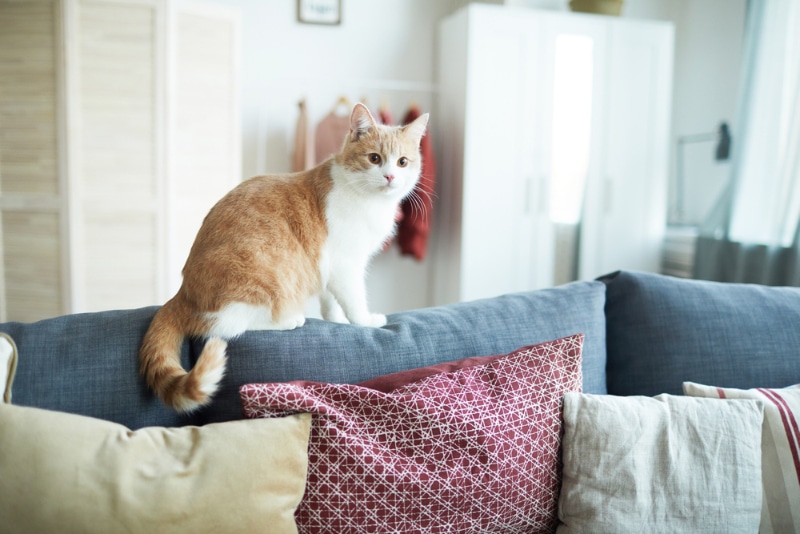
5. Use Your Words
Using words as “second-order reinforcers” to mark good and bad behavior can be useful. Cats are capable of learning what different words mean. Every time your cat bites you aggressively, simply and firmly tell them no, and repeat that every time they do something that isn’t welcome. Make sure you allow this up with an action, such as stopping play. Otherwise, the word becomes meaningless. The same can also go for good behavior. Say “good kitty” and follow up with a treat or other reward when they are doing the right thing.
6. Seek Professional Help
Have a consultation with your veterinarian to help understand where the behavior is coming from. The more you understand why your cat is doing something, the more you can modify the behavior. Your vet can also rule out any medical conditions that could be causing your cat to act a certain way. Training animals is not easy and requires good timing and consistency to get it right. Your veterinarian can make sure your training techniques are correct and help improve your training program.

Conclusion
When cats bite you, in their eyes, it can be totally justified. Biting hurts and can make you feel that your cat doesn’t like you. There is always a motivation for them to bite. For their welfare, it is important to rule out any medical conditions that could cause pain or discomfort, leading to a bite. If they have boundaries around petting, respect this and learn to read the signs that they have had enough. Remember that you don’t like people invading your personal space either. On the other hand, if your cat is simply over-exuberant or playful, you can employ training to correct the behavior.
See Also:
- Will the Solar Eclipse Affect Your Cat? Interesting Facts & FAQ
- Why Does My Cat Lay on My Stomach? 5 Common Reasons
- Why Does My Cat Grab My Hand and Bite Me? 5 Common Reasons
Featured Image Credit: Nau Nau, Shutterstock

